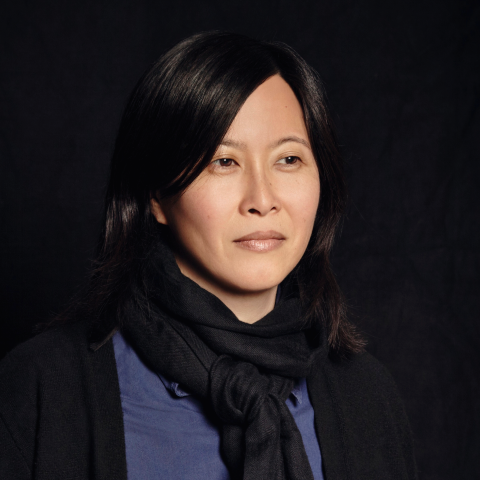Kim Yutani was appointed Director of Programming, Sundance Film Festival in 2018. She began programming short films there in 2006, and became a feature film programmer in 2009, focusing on US and international fiction feature films, overseeing short film programming, and working on the Festival’s Offscreen series of panels and conversations. She was instrumental in the creation of Sundance Film Festival: Hong Kong, which she also programs. During her tenure at the Institute, she has represented Sundance internationally by serving on juries, speaking on panels, and working to cultivate relationships with film commissions, industry, and artists around the world. For the past five years, she has also overseen a new collaboration with the Berlinale’s European Film Market — housed within the Sundance Film Festival at EFM program — which has provided exposure and sales opportunities for Sundance films, immediately after premiering at the Festival.
She started her programming career at Outfest Los Angeles, one of the world’s leading LGBT festivals, where she was the Artistic Director and the Director of Programming. She was a programmer for the Provincetown International Film Festival, has been a reader for Creative Capital, and was on the short film nominating committee for Cinema Eye Honors. Prior to her film festival work, Yutani was a film critic and freelance journalist focusing on independent film. She got her start in the industry as Director Gregg Araki’s assistant.
In the last year, what has been your proudest accomplishment?
Last year I became Director of Programming of the Sundance Film Festival, which was an exciting career step for me. Even though I felt confident about the films our team had selected and I knew the work we had done on the Festival was exceptional, I had some trepidation prior to the Festival, knowing that I would be under scrutiny in my first year. I was credited for putting together one of the most inclusive Sundance lineups the festival had seen, which was an unspoken goal of mine, but I was eager to showcase the program beyond statistics. So seeing audiences and critics and ultimately, buyers, react in an overwhelmingly positive way to films like “The Farewell,” “Late Night,” “Blinded By the Light,” and “Clemency”–films about people of color and directed by women of color, was incredible. It felt like a significant cultural and industry shift had emerged in my first year on the job.
How has your ethnic identity impacted you personally or your career?
My ethnic identity is something I see as an advantage because not always feeling a part of the mainstream helps me to enter experiences with empathy and an inquisitive spirit—as a programmer I feel it allows me judge the work I’m seeing in a pure way, separating my own experience from it.
Who are some of your biggest supporters and trusted advocates throughout your journey?
Specifically this past year, I’m grateful to the Sundance programming team for their respect and for putting collaboration into action. I credit some industry friends and colleagues like Kirsten Schaffer, Trevor Groth, Kevin Iwashina, Marcus Hu, Eliza Hittman, and my partner Liz VanderVen—for encouraging me and (very politely) suggesting ways in which I could be better, and helping me shed my inhibition about being ambitious! My parents gave me the gift of travel at an early age, showed me good taste, and allowed me to pursue my interests, no matter how weird they might be.
